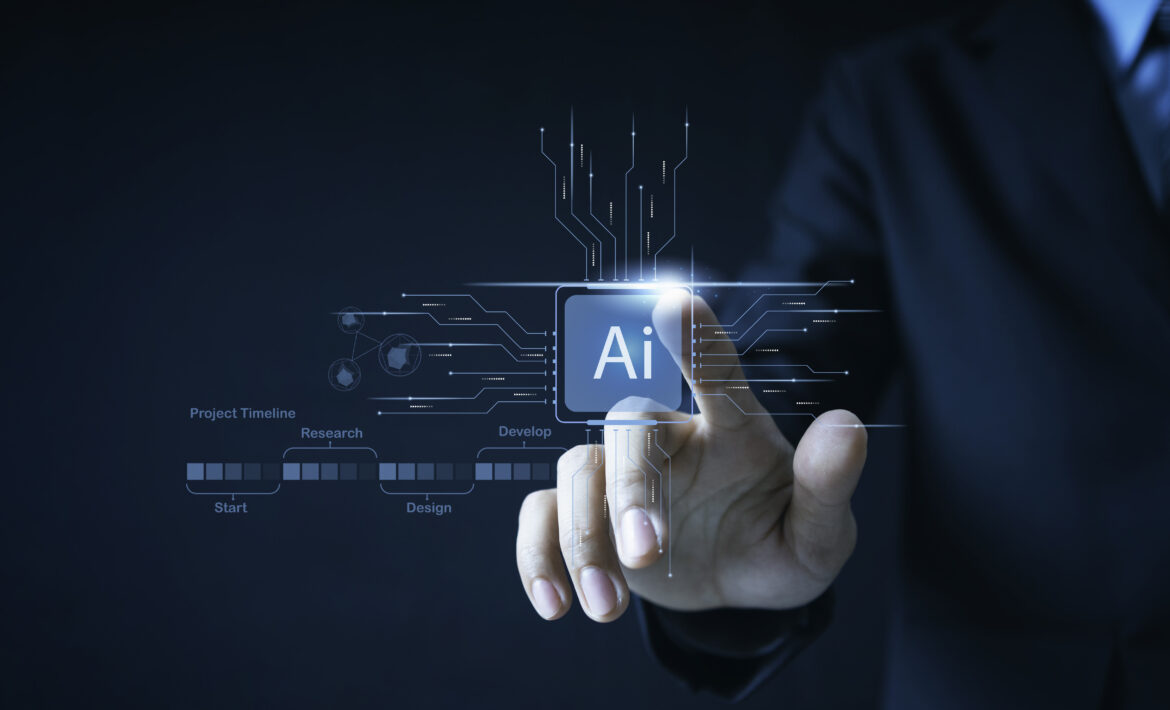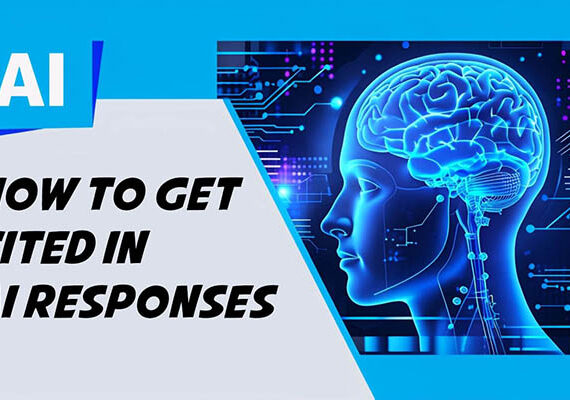Explained: How AI is changing our life day by day in 2025
Artificial Intelligence (AI) has rapidly emerged as a transformative technology that is revolutionizing various aspects of our lives. From healthcare and transportation to finance, education, retail, and cybersecurity, AI is making significant inroads, reshaping industries and impacting our daily experiences. As we look ahead to the year 2025, the potential of AI becomes even more apparent, with advancements set to revolutionize diagnostics, treatment, and patient care in healthcare, and transform transportation through autonomous vehicles and traffic management.
Enhance efficiency and automation in manufacturing, revolutionize banking, investment, and fraud detection in finance, personalize learning and virtual classrooms in education, improve customer experience and predictive analytics in retail, and bolster cybersecurity efforts in data protection and threat detection. This article delves into these areas to explore how AI will shape our lives in 2025 and the far-reaching implications it holds for all industries.
1. Introduction: The Growing Role of Artificial Intelligence (AI) in Our Lives
Understanding Artificial Intelligence (AI)
Artificial Intelligence (AI) has gone from being a concept in science fiction movies to becoming an integral part of our daily lives. But what exactly is AI? Put simply, AI refers to the development of computer systems that can perform tasks that would typically require human intelligence. In other words, AI aims to simulate and replicate human intelligence in machines.
The Evolution and Adoption of AI
What started as a distant dream has now become a reality, thanks to advancements in technology and computing power. The evolution of AI has been fueled by breakthroughs in machine learning, deep learning, and neural networks. As these technologies continue to improve, the potential applications for AI across various industries are expanding rapidly.
Today, AI is being adopted across industries such as healthcare, transportation, manufacturing, finance, and even entertainment. Its ability to process and analyze vast amounts of data, identify patterns, and make predictions has made it a game-changer in many fields. In the next sections, we will explore how AI is set to revolutionize healthcare, transform transportation, and enhance manufacturing processes shortly.
2. AI in Healthcare: Revolutionizing Diagnostics, Treatment, and Patient Care
AI-Enabled Diagnostic Tools
Imagine a world where you no longer have to wait for days to get your medical test results. With AI-enabled diagnostic tools, this could become a reality. AI algorithms can analyze medical images, such as X-rays and MRIs, with incredible precision and speed, helping physicians detect diseases and abnormalities more accurately. This not only saves time but also ensures early and accurate diagnoses, leading to better treatment outcomes.
Robotic-Assisted Surgery
Gone are the days when surgeries were only performed by human hands. AI is now making its way into the operating room through robotic-assisted surgery. Surgeons can use robots equipped with AI algorithms to assist them during complex procedures, enhancing precision and reducing the risk of human error. This technology has the potential to revolutionize surgery, making it less invasive and more efficient and ultimately improving patient recovery rates.
AI in Personalized Medicine
Personalized medicine takes into account an individual’s unique genetic makeup, lifestyle, and medical history to tailor treatment plans. AI is playing a crucial role in this field by analyzing vast amounts of patient data to identify patterns and develop personalized treatment strategies. By leveraging AI, healthcare professionals can provide patients with targeted therapies, reducing the risk of adverse reactions and improving overall treatment effectiveness.
3. Transforming Transportation: AI’s Influence on Autonomous Vehicles and Traffic Management
Autonomous Vehicles: Challenges and Benefits
The rise of autonomous vehicles is no longer a distant dream. AI is at the core of self-driving cars, enabling them to perceive their surroundings, make decisions, and navigate safely. While there are still challenges to overcome, such as regulatory issues and public acceptance, autonomous vehicles have the potential to revolutionize transportation by reducing accidents, congestion, and emissions.
AI in Traffic Control and Optimization
Traffic management is another area where AI can make a significant impact. By analyzing real-time data from sensors and cameras, AI algorithms can optimize traffic flow, reduce congestion, and improve overall transportation efficiency. This can lead to shorter travel times, improved fuel efficiency, and a smoother commuting experience for everyone.
Enhancing Safety and Efficiency in Transportation
AI-based systems can enhance safety in transportation by detecting and predicting potential accidents or hazards. For example, AI algorithms can analyze data from various sources, such as traffic cameras and weather sensors, to identify dangerous road conditions in real-time. This information can then be used to alert drivers and authorities, allowing them to take preventive measures and ensure safer journeys.
4. AI in Manufacturing: Enhancing Efficiency, Automation, and Quality Control
AI-Driven Predictive Maintenance
Maintaining machinery and equipment is crucial in manufacturing, and AI is making this task more efficient and proactive. AI-driven predictive maintenance systems can analyze data from sensors and historical records to predict when machines are likely to fail. By detecting potential issues in advance, manufacturers can schedule maintenance activities proactively, minimizing downtime and reducing costs.
Robotics and Automation in Manufacturing
Robots have been a part of the manufacturing industry for years, but with AI, they are becoming smarter and more capable than ever. AI-powered robots can perform complex tasks with precision and speed, working alongside human counterparts to enhance efficiency. This collaboration between humans and machines is transforming production lines, improving productivity, and freeing up human workers for more complex and creative tasks.
Quality Control and Defect Reduction with AI
Maintaining consistent quality is paramount in manufacturing, and AI is helping companies achieve this goal. Through image recognition and machine learning algorithms, AI can analyze products in real-time, identifying defects or deviations from the desired specifications. This allows manufacturers to catch problems early, reduce waste, and ensure that only the highest quality products reach the market.
In conclusion, AI’s impact on our lives in 2025 and beyond will be profound. From revolutionizing healthcare by improving diagnostics and personalized medicine to transforming transportation through autonomous vehicles and traffic optimization and enhancing efficiency and quality control in manufacturing, AI is set to change the way we live and work. As we embrace the possibilities offered by AI, it is important to navigate the ethical and societal implications, ensuring that this powerful technology is used responsibly for the betterment of humanity.

5. AI in Finance: Revolutionizing Banking, Investment, and Fraud Detection
AI in Personal Banking and Financial Planning
Picture this: you’re sitting on your couch, sipping your morning coffee, and your AI assistant notifies you that your monthly savings goal has been successfully met. Thanks to artificial intelligence, managing your finances has never been easier. AI-powered personal banking tools analyze your spending habits, categorize expenses, and provide tailored financial advice. Say goodbye to the days of tedious budgeting spreadsheets!
Automated Trading and Investment Strategies
AI isn’t just for humans. In the finance industry, algorithms are making waves by taking over trading and investment decisions. These automated systems use complex data analysis and predictive models to identify profitable opportunities, execute trades, and optimize investment strategies. With AI at the helm, the days of hectic stock market watching and emotional trading decisions are becoming a thing of the past.
Fraud Detection and Cybersecurity in Finance
When it comes to protecting your hard-earned money, AI is here to be your financial superhero. Machine learning algorithms analyze millions of transactions in real-time, allowing financial institutions to detect and prevent fraudulent activities. Whether it’s spotting unusual spending patterns or identifying potential data breaches, AI-powered fraud detection systems help keep your finances secure. So feel free to swipe that credit card with peace of mind!
6. Education and AI: Personalized Learning, Virtual Classrooms, and Teacher Support
Personalized Learning with AI Assistants
Gone are the days of one-size-fits-all education. AI technology is transforming the way we learn by personalizing the educational experience. AI assistants can adapt to individual learning styles and paces, providing customized lessons and recommendations. From interactive quizzes to tailored study plans, AI-powered learning tools ensure that each student gets the personalized attention they need to excel.
Virtual Classrooms and Remote Learning
Who needs a physical classroom when you can have a virtual one? AI makes it possible for students to attend classes from anywhere in the world. Virtual classrooms offer real-time interaction with teachers and peers, creating a dynamic and engaging learning environment. Whether you’re in your pyjamas or on a beach vacation, the knowledge is just a click away.
AI-Powered Teacher Support and Assessment
Teachers can finally get some extra help! AI-enabled tools assist educators in tasks like grading assignments and providing feedback, allowing them to focus on what they do best: teaching. Additionally, AI assessment tools can analyze student performance data, identifying areas of improvement and suggesting personalized learning strategies. With AI by their side, teachers can achieve superhero levels of effectiveness.
7. AI in Retail: Enhancing Customer Experience, Inventory Management, and Predictive Analytics
AI-Powered Customer Service and Personalized Recommendations
In the world of retail, AI is the secret sauce behind exceptional customer experiences. From chatbots that provide instant support to personalized product recommendations based on your preferences, AI ensures that your shopping journey is smooth and tailored to your needs.
Inventory Management and Supply Chain Optimization
Say goodbye to empty shelves or surplus stock nightmares. AI algorithms analyse historical sales data, current trends, and even external factors like weather patterns to optimize inventory management. By accurately predicting demand, retailers can ensure they have the right products in the right place at the right time. Thanks to AI, you might never have to face the dreaded “out of stock” sign again.
Utilizing Predictive Analytics for Sales and Demand Forecasting
By crunching vast amounts of data, algorithms identify patterns, identify customer preferences, and predict future trends. This information helps retailers make informed decisions about stock levels, marketing campaigns, and pricing strategies. Move aside, fortune tellers – AI is here to guide the way.
8. AI and Cybersecurity: Protecting Data, Identifying Threats, and Preventing Attacks
AI-Enhanced Threat Detection and Prevention
When it comes to cybersecurity, AI is the ultimate shield against cyber threats. Machine learning algorithms constantly analyze network traffic, flagging suspicious activities and potential security breaches. From detecting malware to thwarting sophisticated hacking attempts, AI acts as a guardian for your digital fortress. So rest easy knowing that your online presence is under AI’s watchful eye.
Data Privacy and Protection with AI
AI doesn’t just identify threats; it also ensures your data stays secure and private. With advancements in AI, data encryption and anonymization techniques have become stronger, making it harder for unauthorized individuals to access sensitive information. Thanks to AI’s data protection prowess, you can browse, shop, and communicate online with confidence.
Utilizing AI in Incident Response and Recovery
Oops, something went wrong. But fear not, AI is here to save the day even when a cyber incident occurs. AI-powered incident response systems can quickly identify the source of an attack, mitigate its impact, and guide recovery efforts. By automating these processes, AI reduces response time and minimizes the disruption caused by cybersecurity incidents. So, even in the face of adversity, AI has your back.
Conclusion
In conclusion, the impact of artificial intelligence on our lives in 2025 cannot be underestimated. From healthcare to transportation, finance to education, and retail to cybersecurity, AI is transforming industries and opening up new possibilities. As we embrace the potential of AI, it is crucial to navigate ethical considerations, address potential challenges, and ensure that these advancements benefit humanity as a whole. With continued research, innovation, and responsible implementation, we can harness the power of AI to create a future where technology enhances our lives, improves efficiency, and unlocks unprecedented opportunities. The journey into the age of AI has only just begun, and the possibilities for positive change are endless.
FAQ
Q: What is the role of artificial intelligence (AI) in healthcare sectors in 2025?
A: AI is transforming healthcare by revolutionizing diagnostics, treatment, and patient care. It enables advanced diagnostic tools, assists in robotic-assisted surgeries, and facilitates personalized medicine.
Q: How does AI impact transportation?
A: AI is influencing transportation through the development of autonomous vehicles and improved traffic management. It holds the potential to enhance safety and efficiency and optimize traffic control systems.
Q: What are the benefits of AI in manufacturing?
A: AI enhances manufacturing processes by improving efficiency, automation, and quality control. It enables predictive maintenance, utilizes robotics and automation, and reduces defects in manufacturing.
Q: How is AI revolutionizing finance?
A: AI is transforming finance by revolutionizing banking, investment, and fraud detection. It introduces personalized banking services, automated trading strategies, and enhanced cybersecurity measures.
Thank you for reading 🙂
If you want to build your website at an affordable price, contact: www.nextr.in
Read this: How To Become A Web Developer?


















